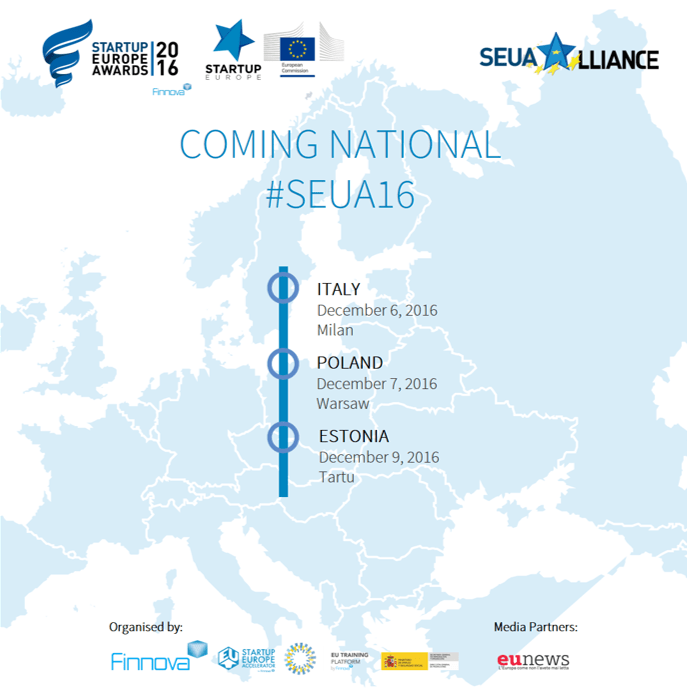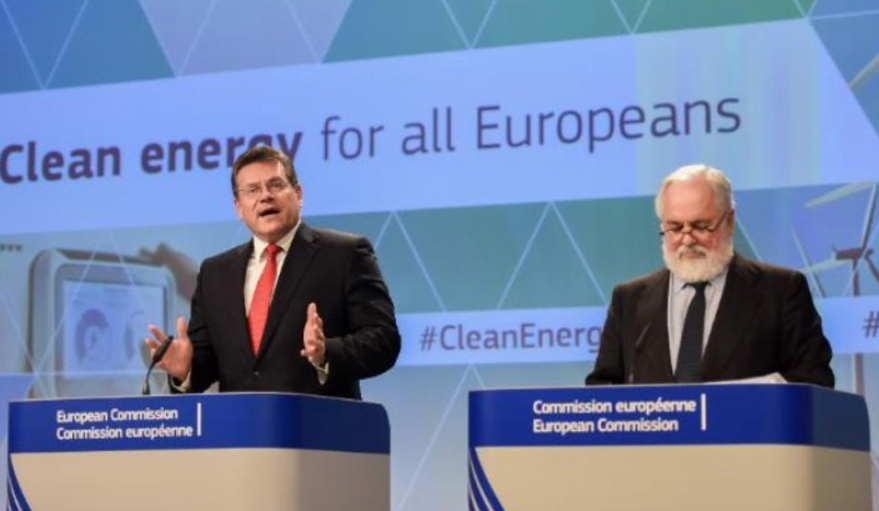 The European Commission (EC) presented yesterday in Brussels a package of measures to keep the European Union competitive as the clean energy transition is changing the global energy markets, which will ensure “clean energy for all Europeans”.
The European Commission (EC) presented yesterday in Brussels a package of measures to keep the European Union competitive as the clean energy transition is changing the global energy markets, which will ensure “clean energy for all Europeans”.
The Clean Energy for All Europeans package, which contains several legislative proposals, has three main goals: putting energy efficiency first, achieving global leadership in renewable energies and providing a fair deal for consumers.
The Commission wants the EU to lead the clean energy transition, for this reason the EU has committed to cut CO2 emissions by at least 40% by 2030 while modernising the EU’s economy and delivering on jobs and growth for all European citizens.
“The future is clean” and consumers are active and central players on the energy markets of the future, explained The Vice-President for Energy Union Maroš Šefčovič in a press conference at the European Commission.
“We are ensuring the rights of everyone to produce renewable energy, self-consume, store or sell it into the grid” added Maroš Šefčovič.
The package also increased transparency and better regulation give more opportunities for civil society to become more involved in the energy system and respond to price signals.
In this regarding the Vice-President for Energy Union explained the new package “boots energy cooperatives in an unprecedented way. Also, it empowers energy consumers, encourage them to take advantage of the new power offering them right to request smart meters, electronic billing, electricity contract…”
The proposals provide “a strong market pull for new technologies, set the right conditions for investors, empower consumers, make energy markets work better and help us meet our climate targets”, said Commissioner for Climate Action and Energy Miguel Arias Cañete.
“I’m particularly proud of the binding 30% energy efficiency target, as it will reduce our dependency on energy imports, create jobs and cut more emissions. Europe is on the brink of a clean energy revolution”, added Energy Miguel Arias Cañete.
But also, several measures to protect the most vulnerable consumers like the issue of energy poverty, in which “EC cannot be silent on it”, pointed Maroš Šefčovič.
The proposals are designed to show that the clean energy transition is the growth sector of the future, since clean energies in 2015 attracted global investment of over 300 billion euros, as the Commission explained.
As well, the EU is well placed to use its research, development and innovation policies to turn this transition into a concrete industrial opportunity. By mobilising up to 177 billion euros of public and private investment per year from 2021, this package can generate up to 1% increase in GDP over the next decade and create 900,000 new jobs.
The legislative proposals presented yesterday cover energy efficiency, renewable energy, the design of the electricity market, security of electricity supply and governance rules for the Energy Union. In addition, the Commission proposes a new way forward for Ecodesign as well as a strategy for connected and automated mobility.
Now the Commission counts on European Parliament and the Member States to make it a reality.
“Energía limpia para todos”: un nuevo paso a la transicion energética EU
La Comisión presentó ayer un paquete de medidas para preservar la competitividad de la Unión Europea, ya que la transición hacia una energía limpia está cambiando los mercados mundiales de la energía.
Las propuestas de que ayer se presentaron tienen tres objetivos fundamentales: dar prioridad a la eficiencia energética, convertirnos en líder mundial de energías renovables y ofrecer un trato justo a los consumidores.
Con ello, la Comisión pretende que la UE no solo se adapte a esta transición, para ello, la UE se ha comprometido a reducir las emisiones de CO2 en al menos un 40 % de aquí a 2030 y, al mismo tiempo, modernizar la economía de la UE y crear crecimiento y empleo para todos los ciudadanos europeos.
“El futuro es limpio” y los consumidores son agentes activos y centrales en los mercados de la energía del futuro” explicó el vicepresidente de la Unión de la Energía, Maroš Šefčovič.
“Con este nuevo paquete de medidas estamos garantizando los derechos de todos los cuidadanos europeos a producir energía renovable, autoconsumo, almacenarla o venderla a la red”, agregó Maroš Šefčovič.
El paquete también supondrá un aumento en transparencia y reglamentación mejorada, que dará más oportunidades a la sociedad civil para involucrarse más en el sistema energético y responder a las señales de precios.
En este sentido, el Vicepresidente de la Unión de Energía explicó que el nuevo paquete “apoya a las cooperativas energéticas de una manera sin precedentes. Además, da poder a los consumidores de energía, les anima beneficiarse de sus derechos y empoderarse de su consumo, como pueda ser solicitar contadores inteligentes, facturación electrónica, contrato de electricidad… ”
Además, contempla varias medidas para proteger a los consumidores más vulnerables como es la lucha contra la pobreza energética, en la que “la Comisión no puede quedarse en silencio”, señaló Maroš Šefčovič.
Las propuestas proporcionan una fuerte demanda de mercado para las nuevas tecnologías, establecen las condiciones adecuadas para los inversores, confieren poder a los consumidores, mejoran el funcionamiento de los mercados de la energía y nos ayudan a alcanzar nuestros objetivos climáticos”, dijo el Comisario de Acción Climática y Energía Miguel Arias Cañete.
“Estoy especialmente orgulloso del objetivo vinculante de un 30 % de eficiencia energética, ya que con él disminuirá nuestra dependencia de las importaciones de energía, se creará empleo y se reducirán más las emisiones. Europa se encuentra a las puertas de una revolución en el ámbito de las energías limpias”, añadió.
Las propuestas de la Comisión relativas a una Energía limpia para todos los europeostienen por objeto demostrar que la transición hacia una energía limpia es el sector de crecimiento del futuro, y ahí es precisamente donde está el dinero inteligente.
Las energías limpias atrajeron en 2015 una inversión global superior a los 300 000 millones de euros. La UE está bien situada para utilizar sus políticas de investigación, desarrollo e innovación a fin de convertir esta transición en una oportunidad industrial concreta. Al movilizar hasta 177 000 millones de euros de inversión pública y privada al año a partir de 2021, este paquete de medidas puede generar un aumento de hasta un 1 % del PIB durante la próxima década y crear 900 000 empleos nuevos.
Las propuestas legislativas de energía limpia para todos los europeos abarcan la eficiencia energética, las energías renovables, el diseño del mercado de la electricidad, la seguridad del abastecimiento de electricidad y las normas de gobernanza de la Unión de la Energía. La Comisión propone además nuevas perspectivas de diseño ecológico y una estrategia para una movilidad conectada y automatizada.
 Finnova presentó ayer en la Oficina de la Junta de Extremadura en Bruselas sus diferentes programas de apoyo a emprendedores y los programas estrella en financiación Europea a empresarios de Badajoz y Cáceres.
Finnova presentó ayer en la Oficina de la Junta de Extremadura en Bruselas sus diferentes programas de apoyo a emprendedores y los programas estrella en financiación Europea a empresarios de Badajoz y Cáceres. Finnova presented yesterday in the Office of Extremadura in Brussels its different programmes for entrepreneurs and the most important ongoing European Funding Programmes to entrepreneurs of Badajoz and Cáceres.
Finnova presented yesterday in the Office of Extremadura in Brussels its different programmes for entrepreneurs and the most important ongoing European Funding Programmes to entrepreneurs of Badajoz and Cáceres.
 The
The 
 The European Commission (EC) presented yesterday in Brussels a package of measures to keep the European Union competitive as the clean energy transition is changing the global energy markets, which will ensure “clean energy for all Europeans”.
The European Commission (EC) presented yesterday in Brussels a package of measures to keep the European Union competitive as the clean energy transition is changing the global energy markets, which will ensure “clean energy for all Europeans”.